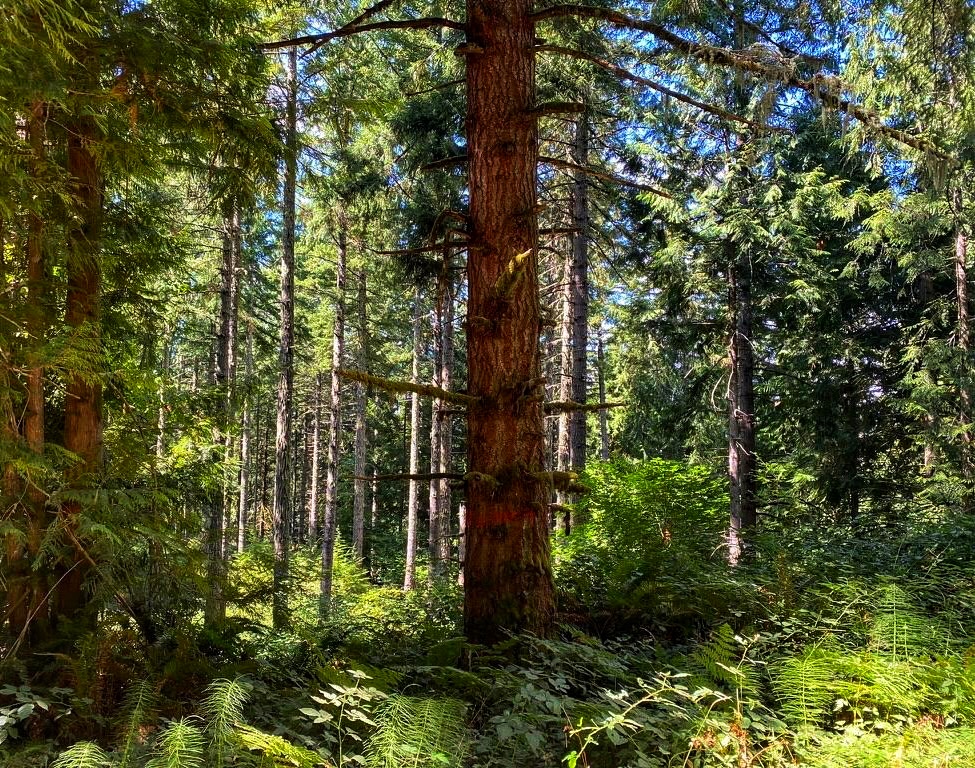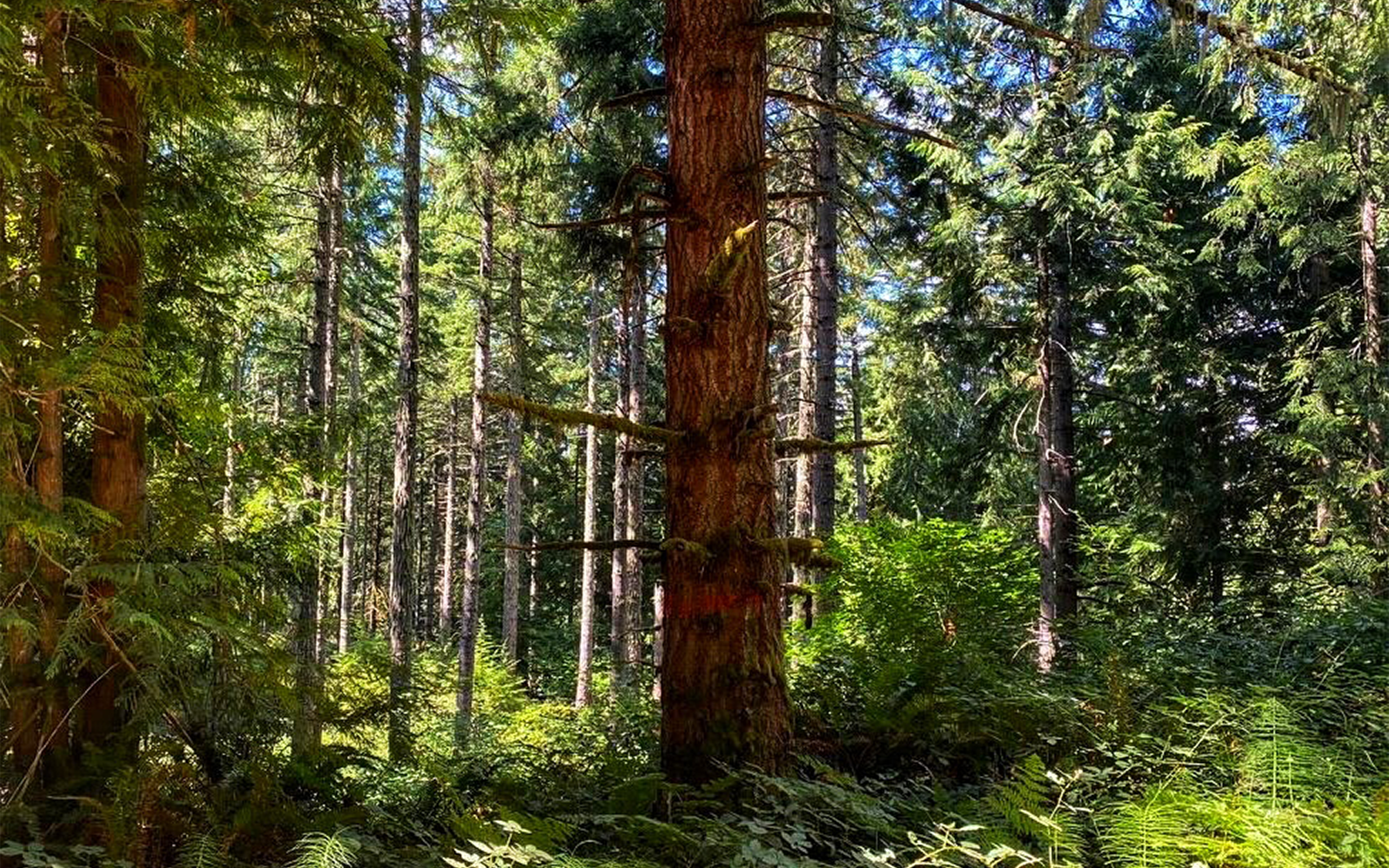FOR IMMEDIATE RELEASE
November 7, 2023
Contacts:
Peter Jensen, Cascadia Wildlands | peter@cascwild.org | (385) 444-8631
Lindsey Hutchison, Willamette Riverkeeper | lindsey@willametteriverkeeper.org | (971) 369-7590
John Persell, Oregon Wild | jp@oregonwild.org | (503) 896-6472
Eugene, Oregon – Today, conservation organizations Willamette Riverkeeper, Cascadia Wildlands, and Oregon Wild filed suit against the Bureau of Land Management (BLM), challenging the agency’s authorization of the approximately 4,600-acre Big League Project in the Calapooia and Mohawk River Watersheds northeast of Eugene. According to the groups’ complaint, the BLM violated the National Environmental Policy Act (NEPA) by failing to take the required “hard look” at the impacts that the Big League Project would have on a host of environmental values, including spotted owl habitat, carbon storage, stream flows, and water quality. Specifically, this project plans to clearcut the last and best older forest stands in the Calapooia and Mohawk River Watersheds.
Of particular concern, the BLM failed to fully analyze the effects of logging and road construction activities on the threatened Upper Willamette River spring Chinook salmon. According to a 2011 analysis by the National Marine Fisheries Service (NMFS), these salmon are at a “very high risk” of extinction and logging units within the Big League Project directly abut the species’ critical habitat in the Calapooia River.
Due to impacts on Chinook salmon, the conservation groups also gave notice to the BLM and NMFS that the agencies are in violation of the Endangered Species Act (ESA) by failing to account for changed conditions in the Calapooia Watershed following the 2020 Holiday Farm Fire.
“It’s outrageous and completely unacceptable that the BLM and NMFS have not acted in accordance with bedrock environmental laws. The BLM’s pursuit of clearcut logging along the Calapooia puts the Upper Willamette River spring Chinook salmon’s already fragile habitat directly at risk,” said Lindsey Hutchison of Willamette Riverkeeper.
The groups claim that the changed conditions in the Calapooia Watershed make the BLM’s timber sale unlawful. Particularly, while most of the 2020 Holiday Farm Fire burned at a low or moderate severity, a significant portion experienced high or moderate soil burn severity. Fire-damaged soils have high rates of root mortality and increased rates of water runoff and erosion. The fire affected nearly 14,000 acres of the Calapooia Watershed, eliminating streamside vegetation, destabilizing streambanks, and elevating sediment in the river. Such changed conditions make the BLM’s reliance on NMFS’s 2018 Biological Opinion (BiOp) to support the Big League Project and associated timber sales unlawful.
“Once again, the BLM is rushing to log without fully considering how their actions impact the larger landscape,” said Peter Jensen of Cascadia Wildlands. “Our forests and watersheds will pay the price, and vulnerable spotted owl and salmon populations will be pushed even closer to extinction.”
In the 2018 BiOp, NMFS recognized that the BLM’s logging program would affect designated critical habitat by raising stream temperatures, introducing sediment into streams, reducing large wood recruitment into streams, and altering peak and base flows of streams. The added effects of the 2020 Holiday Farm Fire compound the harm that will result from the logging and road work authorized for the Big League Project. By ignoring the cumulative impacts on Chinook salmon, the BLM risks severely degrading the species’ habitat in pursuit of timber volume.
“Public lands are some of the last places for imperiled wildlife and quality salmon habitat, where mature and old-growth forests can grow to help us fight climate change and make the landscape more resilient,” said John Persell of Oregon Wild. “The BLM is performing a lot of bureaucratic gymnastics to argue that turning these refuge forests into another series of clearcuts, surrounded by more clearcuts, is going to have ‘no significant impact.'”
The Upper Willamette River spring Chinook salmon are a genetically distinct group, well-adapted to the natural river flows and seasonal changes of the Willamette River and its tributaries. Logging can degrade its stream habitat by muddying waters, altering riverbed stability, and obstructing migration corridors. All of these changes harm the survival of these unique salmon. Efforts to protect their habitat and ensure clean water, stable riverbeds, and clear migration paths are crucial, as their populations have sharply declined, with counts of wild Upper Willamette River spring Chinook averaging less than 10,000 fish annually at Willamette Falls since 2010. Historically, the Upper Willamette River supported hundreds of thousands of spring Chinook salmon. In the 1920s, approximately 300,000 adult spring Chinook salmon were observed passing Willamette Falls.

Cascadia Wildlands is a 501c3 non-profit with over 12,000 members and supporters whose mission is to defend and restore Cascadia’s wild ecosystems in the forests, in the courts, and in the streets. We envision vast old-growth forests, rivers full of wild salmon, wolves howling in the backcountry, a stable climate, and vibrant communities sustained by the unique landscapes of the Cascadia bioregion.
Willamette Riverkeeper is a 501(c)(3) non-profit organization founded in 1996 with thousands of members in Oregon and the Pacific Northwest. Willamette Riverkeeper focuses on protecting and restoring the resources of the Willamette River Basin in Oregon and works on programs and projects ranging from the Clean Water Act compliance and river education to Superfund cleanup and restoring habitat.
Oregon Wild represents 20,000 members and supporters who share our mission to protect and restore Oregon’s wildlands, wildlife, and water as an enduring legacy. Our goal is to protect areas that remain intact while striving to restore areas that have been degraded.

